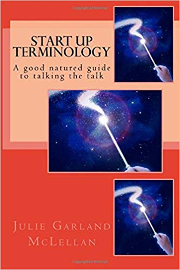Dear reader,
Welcome to the August 2018 edition of The Director’s Dilemma.
Please help me continue to increase the positive impact of this newsletter by forwarding a copy to a board colleague (or aspiring director) with a suggestion that they may wish to subscribe.
To read this email in a browser, go to www.mclellan.com.au/newsletter.html and click on 'read the latest issue'.
This month our case study protagonist is considering a course of action that risks crossing the lines from governance to management and from work to personal. I hope you enjoy thinking about the governance and strategic implications of the latest dilemma:
 Callista chairs a successful start-up company that she founded six years ago. The company has grown using equity injections to allow it to secure a first mover advantage in its marketplace. As is typical, the first investors were private equity and high net worth individuals and the larger investors requested board seats as a condition of investing. The company has now attracted its first institutional investor and is looking to ramp up international growth before seeking to list early next
year.
Callista chairs a successful start-up company that she founded six years ago. The company has grown using equity injections to allow it to secure a first mover advantage in its marketplace. As is typical, the first investors were private equity and high net worth individuals and the larger investors requested board seats as a condition of investing. The company has now attracted its first institutional investor and is looking to ramp up international growth before seeking to list early next
year.
The institutional investor has raised several objections to taking a board seat; mostly she is concerned about potential conflicts of interest between her 'day job' as a fund manager and the company's interests which will really cause a problem when her fund sells down and exits, but also, she doesn't want the risk of being on a statutory board. In her discussions with Callista she has voiced some misgivings about the ability of the board to support Callista and the company through the next phase of growth. The institutional investor believes the current shareholder directors have no concept of good governance, are riven with conflicts, and are only monitoring their personal investment. They also have no background in the technology or market.
Callista has been encouraged to put together an advisory board which can give some business insights and mentoring over the coming months and then flow onto the main board when the company lists. She likes the idea but doesn't relish the thought of two board meetings and two boards giving potentially conflicting direction.
How can Callista proceed to give herself and her company the board level guidance they need without creating an administrative nightmare?

 Callista's challenge is a very typical one for a start-up company moving through into its next phase of development. My view would be that the establishment of an on-going Advisory Committee would add an extra layer of complexity around the governance structure that does not appear to be warranted.
Callista's challenge is a very typical one for a start-up company moving through into its next phase of development. My view would be that the establishment of an on-going Advisory Committee would add an extra layer of complexity around the governance structure that does not appear to be warranted.
 Callista, well done for navigating the company to this point. Now is a perfect opportunity for you to determine if you have the right people to drive the business to the next level.
Callista, well done for navigating the company to this point. Now is a perfect opportunity for you to determine if you have the right people to drive the business to the next level.


